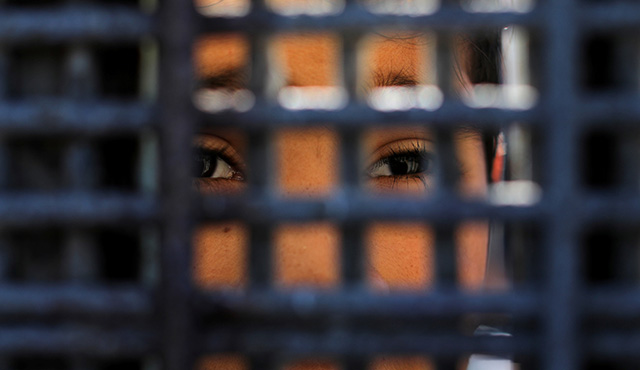In these times, it is good to reflect once again on the parable of the good Samaritan (Lk 10:25-37) because along our southern border the mercy and compassion urged by Jesus can result in criminal charges that can lead to prison. First, let’s look at the parable.
Jesus responding to the question about who is our neighbor said:
“A man fell victim to robbers as he went down from Jerusalem to Jericho. They stripped and beat him and went off leaving him half-dead. A priest happened to be going down that road, but when he saw him, he passed by on the opposite side.
“Likewise a Levite came to the place, and when he saw him, he passed by on the opposite side. But a Samaritan traveler who came upon him was moved with compassion at the sight. He approached the victim, poured oil and wine over his wounds and bandaged them.
“Then he lifted him up on his own animal, took him to an inn and cared for him. The next day he took out two silver coins and gave them to the innkeeper with the instruction, ‘Take care of him. If you spend more than what I have given you, I shall repay you on my way back.’”
In the Arizona desert, where summer and fall temperatures can reach 120 degrees and in winter drop below freezing, 7,000 migrant deaths have been recorded in the past two decades. More than 3,000 have died since the year 2000.
For 15 years, according to The New York Times, modern-day Samaritans in a group named No More Deaths have trekked into the desert to place jugs of water, canned beans and blankets in the most dangerous reaches of the borderlands. They have also searched for missing migrants and looked for the remains of those who have died.
But increasingly, these Samaritans are being arrested and charged with crimes, misdemeanors as well as felonies. In 2018, the Border Patrol arrested Scott Warren, a 36-year-old geography teacher who aided two Central American men who arrived at a place called the barn, the gathering place of the group No More Deaths. They were suffering from hunger, dehydration and blistered feet. He gave them water, shelter and clean clothes.
Warren was charged with three felonies that could send him to prison for 20 years. United Nations human rights officials urged that the charges be dropped. “Humanitarian aid is not a crime,” the Office of the U.N. High Commissioner for Human Rights said.
To no avail, about 125,000 people signed an online petition demanding the case be dismissed. At the trial, held recently, the jury could not agree that Warren was guilty. A decision on what to do next was set for July.
Many of us have done things that could have put us in the same predicament as Warren. Years ago at Chicago Midway International Airport, I met several young men, obviously immigrants, who had missed a flight the night before to upstate New York. They were waiting all day Sunday for the next flight without money to buy anything to eat and unable to call the people meeting them.
I pulled out my phone, dialed the number of the person meeting them and handed their leader the phone. Then, since there was no place where they could buy food on the concourse, I called our Maryknoll office and asked the priest to go to a McDonald’s and buy a dozen burgers and fries and bring them to me. The food arrived before my plane left for New York.
We can’t let cruelty overwhelm our humanity.

